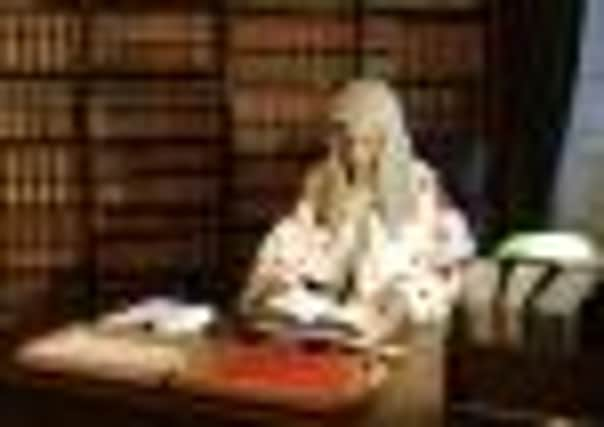So, who’s in the running?


If they have kept to the timetable then the sift has been done and the shortlist drawn up. The runners in the long- distance race to succeed Lord Hamilton as Lord Justice General, Lord President of the Court of Session, head of the Scottish judiciary and chair of the Scottish Court Service will now know who they are.
Shortlisted candidates are to be interviewed on Thursday and Friday of this week.
Advertisement
Hide AdAdvertisement
Hide AdIn the past a new Lord President would “emerge” by mysterious means. Now there is an equal opportunities apparatus in place. Candidates must apply for the job rather than wait for a tap on the shoulder.
To get to the shortlist candidates had to submit their CV, three examples of their written work – either judgments or opinions – and a letter indicating how well their personal qualities meet the post.
These include “integrity, independence of mind, moral courage and the ability to command respect; social awareness and understanding of the contemporary world; sound temperament, consideration and courtesy; excellent communications skills along with fairness, impartiality and a responsible attitude.”
The selection panel of four is chaired by Sir Muir Russell, former head of the Scottish Civil Service and chair of the Judicial Appointments Board for Scotland. He will be assisted by Professor Andrew Coyle, lay member of the Judicial Appointments Board, and judges Lord Hardie from the Inner House of the Court of Session and Lady Dorrian from the Outer House.
Although it sounds like the judicial equivalent of the “uppies” and the “doonies”, the crude distinction is that the Inner House of 12 judges hears appeals, typically sitting on a bench of three, while the Outer House comprises 22 judges who sit alone in a court of first instance.
One of the new duties of the Lord President is to present himself before the justice committee of the Scottish Parliament every year to justify his budget and his spending plans. Lord Hamilton explained recently to the intrigued politicians that he was concerned at the low number of applicants for senior judicial posts. He attributed that in part to the modesty of judicial salaries. The Lord President gets £214,165. A judge in the Inner House receives £196,707, compared to £172,753 in the Outer House. The setting of judicial salaries is reserved to Westminster.
The next Lord President may find him or herself presiding over a period of unprecedented constitutional turbulence affecting the relationship between the judiciary and government in Scotland, depending on the result of the anticipated independence referendum and reconsideration of the role of the European and domestic courts. Leadership and moral courage may be seriously tested on the anvil of events.
While it is proper that applicants for any job are afforded confidentiality, the Justice Department has refused even to say how many applications it received or how many made it to this week’s interview stage. The explanation is that the pool from which the new big fish will be netted is so small that it might be possible to deduce which candidates are in the swim.
Advertisement
Hide AdAdvertisement
Hide AdA news blackout and complete ignorance of who has applied, however, is rarely a constraint on speculation within Parliament House. In fact the eligibility criteria are very broad. Arguably, a solicitor or an advocate of five years’ standing, boundless ambition but no experience whatsoever as a judge could apply.
However the assumptions are that the successful candidate is most likely to be found from among the senior members of the present bench. Members of the Inner House with experience of appeals will have the edge on members of the Outer House.
More than that, it has been noted that during the period between the death last summer of Lord Rodger and his replacement on the UK Supreme Court by Lord Reed, Lord Clarke was seconded on several occasions to London. That might give an edge – if he has applied.
Similarly, Lady Paton was due to sit in London on a Supreme Court case until it settled at the last minute. The urge to appoint a woman to the top judicial job may be strong. If she has applied.
Among the long shots there has been interest in Lord Hodge, who impressed as a forward thinker in his time at the Scottish Law Commission. If he has applied.
Perhaps the most surprising whispers concern Lord Gill, currently Lord Justice Clerk. With Lord Hamilton demitting office at the mandatory retirement age of 70 in June, Lord Gill, only a few months younger, can continue to 75 by dint of his appointment prior to implementation of the Judicial Pensions and Retirement Act 1993. If he applied.
Of course, the greyer heads of Parliament House point out, Lord Hope came from nowhere when he was appointed in the 1990s and Lord Hamilton was a rank outsider when he got the nod in 2005. “Watch out for scions of a legal dynasty”, they warn, “or a sheriff principal with a responsible attitude”.